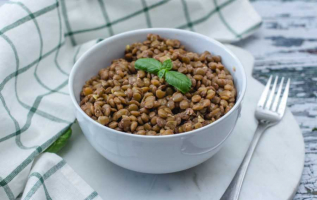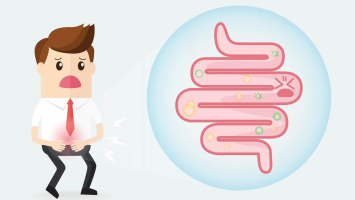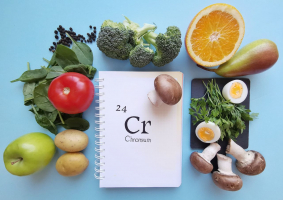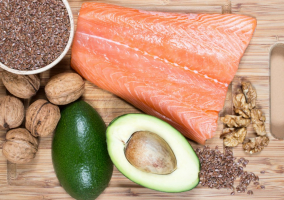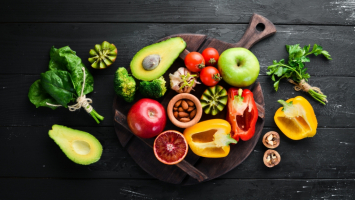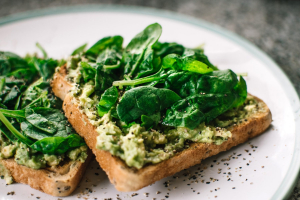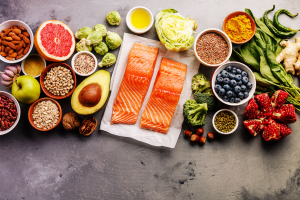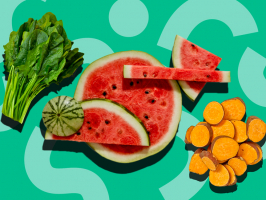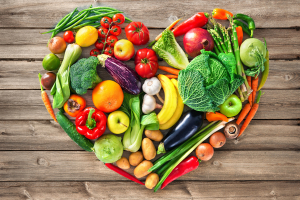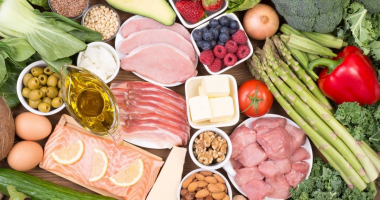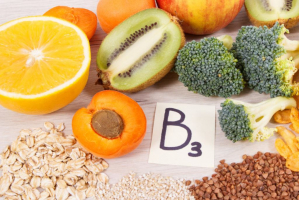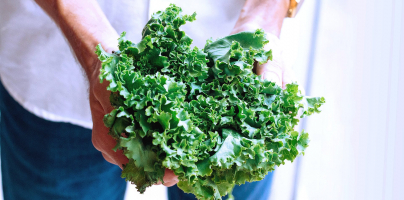Top 10 Best Foods That Reduce Bloating
Bloating is a common issue that is frequently brought on by issues like constipation or too much gas. Additionally, bloating and other digestive problems can ... read more...be strongly impacted by what you eat and drink. Fortunately, numerous ingredients have been demonstrated to promote regularity, avoid fluid retention, and improve gut health, all of which can help reduce bloating. Below are some foods that can reduce bloating.
-
An herb called ginger is well known for its ability to ease stomach discomfort. For example, according to some studies, ginger may speed up stomach emptying to reduce bloating and fullness feelings. Additionally, it contains an enzyme called zingibain that helps in the more efficient breakdown of protein to promote healthy digestion.
According to a May 2018 study published in Scientific Reports, ginger can increase GI tract motility and, consequently, reduce constipation and related abdominal distention. In contrast to placebo, ginger capsules dramatically reduced abdominal distention in people who had recently undergone C-sections, according to the results of the randomized control experiment. According to the University of Michigan Health, the plant has a well-known antiemetic effect, which means it can lessen nausea and vomiting. For stomach relief, try grating fresh ginger into a cup of tea, taking a ginger capsule, or nibbling on crystallized ginger.
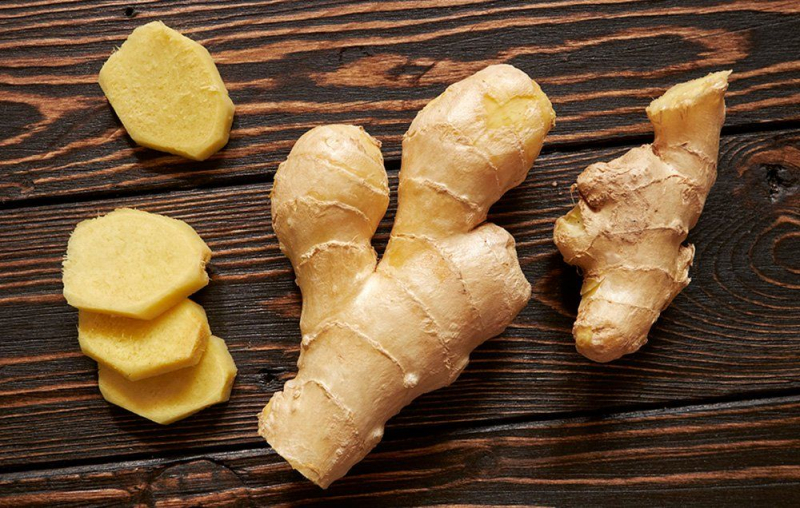
Ginger 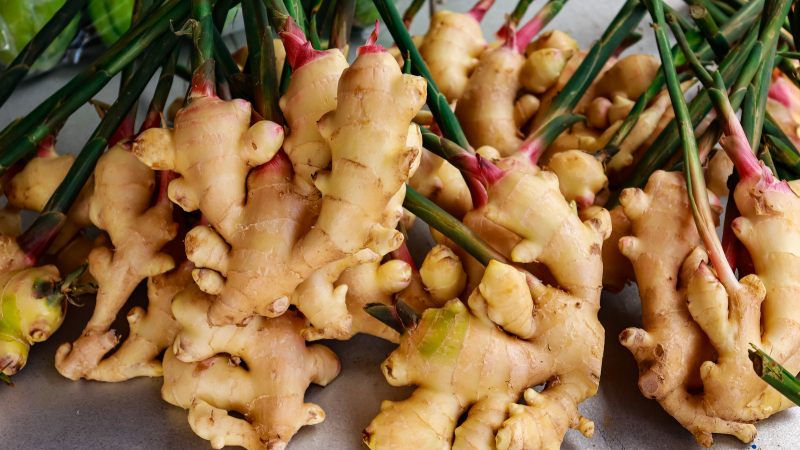
Ginger -
According to the Memorial Sloan Kettering Cancer Center, peppermint includes an organic compound called l-menthol that has been demonstrated to lessen gastric and colonic spasms, relax the muscles of the GI tract, and possibly relieve stomach pain and bloating (MSKCC).
To lessen the risk of peppermint causing stomach acid reflux, make sure to select a product that is enteric-coated, which means it has a special coating that allows the peppermint to reach the small intestine. If you don't frequently get acid reflux, consider drinking a cup of peppermint tea the next time your stomach feels bloated. Herbal teas like peppermint tea are frequently used to treat a variety of digestive issues. Particularly peppermint oil has been demonstrated to reduce inflammation and treat IBS symptoms like bloating, constipation, and stomach pain.
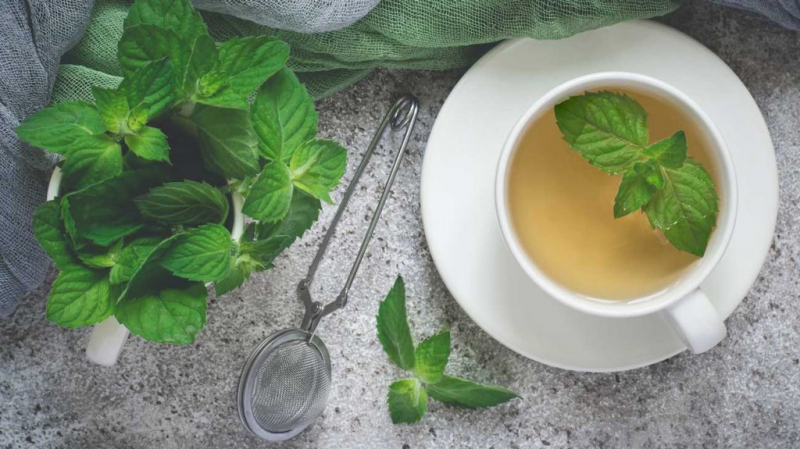
Peppermint 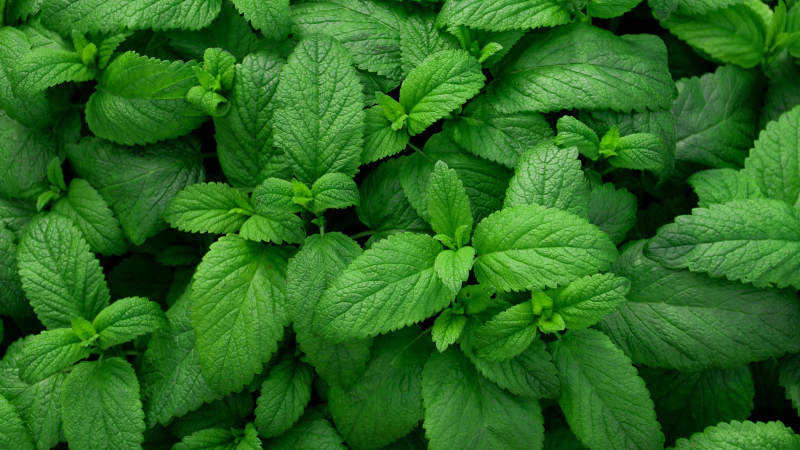
Peppermint -
With loads of vitamin C, manganese, and B vitamins in each serving, pineapple is a tropical fruit that packs a big powerful punch. In addition, pineapple contains bromelain, an enzyme that has a long history of use in traditional medicine to treat digestive issues.
Bromelain, an enzyme found in pineapple, helps in protein digestion. According to Mount Sinai, the substance has been used for hundreds of years to treat inflammation and indigestion in Central and South America. It helps with problems like bloating and swelling. According to MSKCC, it is also said to be beneficial in the treatment of burns and wounds. There is little to no damage in nibbling on a cool bowl of pineapple the next time you're feeling bloated, even though a bromelain supplement may interact with some medications.
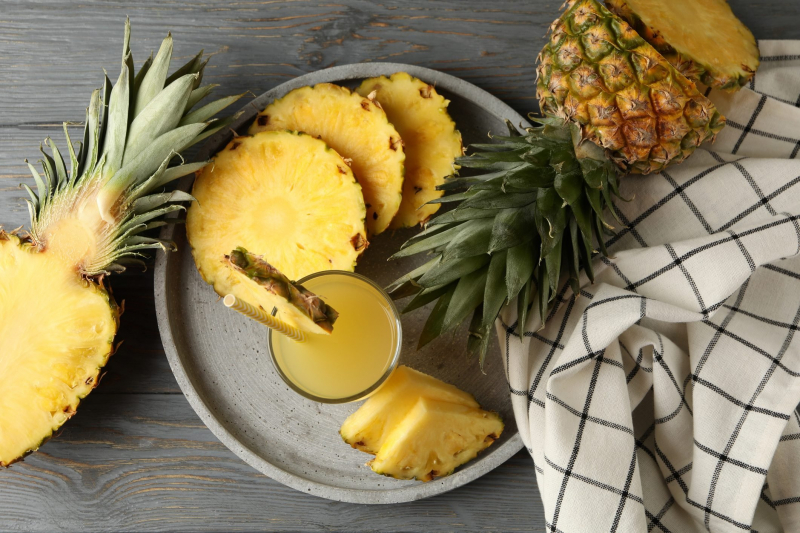
Pineapple 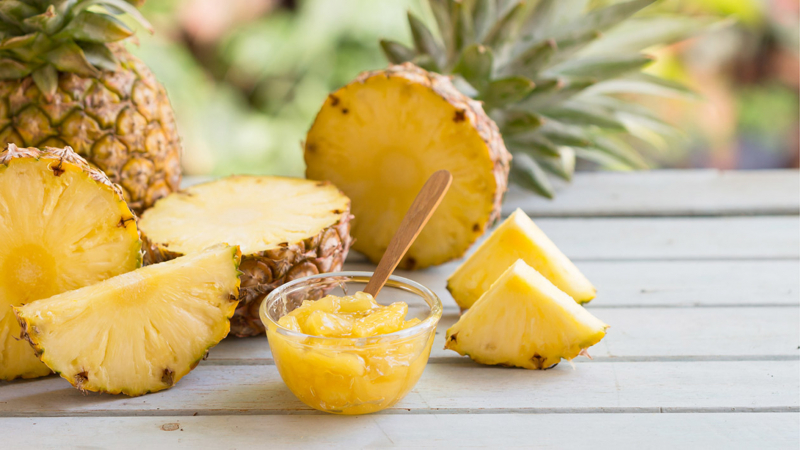
Pineapple -
A tropical fruit called papaya is renowned for its sweet flavor and smooth, creamy texture. In addition to having a high water content, each serving contains a significant amount of fiber
Papaya contains a natural digestive enzyme called papain that may help support digestion. Digestive enzymes help break down the food you eat so that you can properly digest and absorb the nutrients from that food. They also help relieve symptoms such as bloating, constipation, and gas. So papaya and papaya supplements are often advertised for their ability to support digestion. Furthermore, papaya is a low FODMAP-friendly source of fiber that might encourage regularity and, as a result, possibly lessen bloat. You can add papaya to many recipes, like smoothies, salsas, and salads, in addition to eating it on its own.
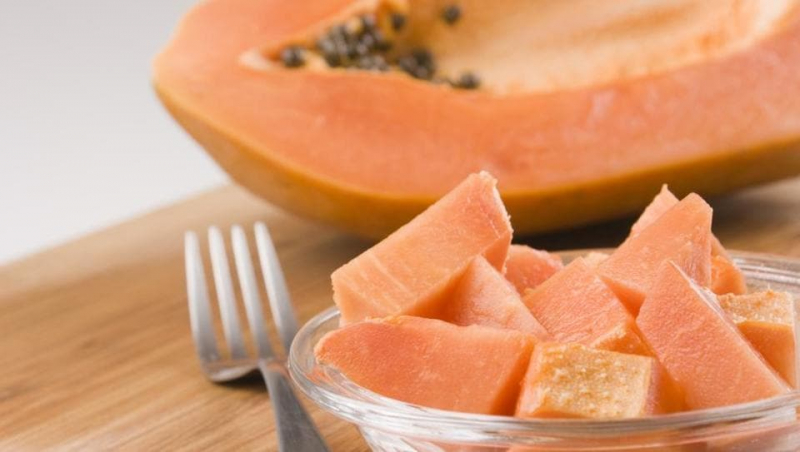
Papaya 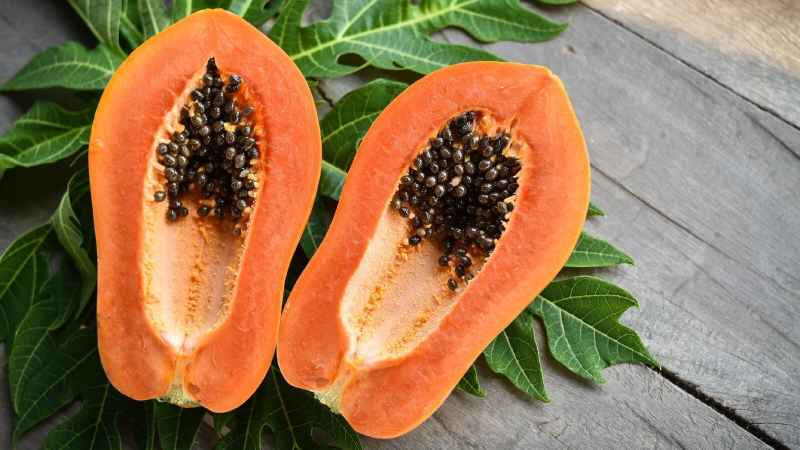
Papaya -
Because cucumbers are mostly water, they are excellent for reducing bloating. Consuming foods high in water can help you keep hydrated and fulfill your daily fluid needs. This might reduce bloating brought on by dehydration and prevent water retention.
Potassium is high in cucumber, which helps combat the negative effects of sodium, which is known to cause bloating. It helps you eliminate extra sodium through urine. The antioxidant quercetin, caffeic acid (found in the skin), vitamin C, and silica found in cucumbers are proven to minimize swelling. Daily use of cucumbers can also help you reduce bloating, just as putting them around your eyes helps reduce puffiness. Cucumbers are frequently consumed without the peel by many people. Because cucumber peels are rich in antioxidants, you can eat them and avoid throwing them away.
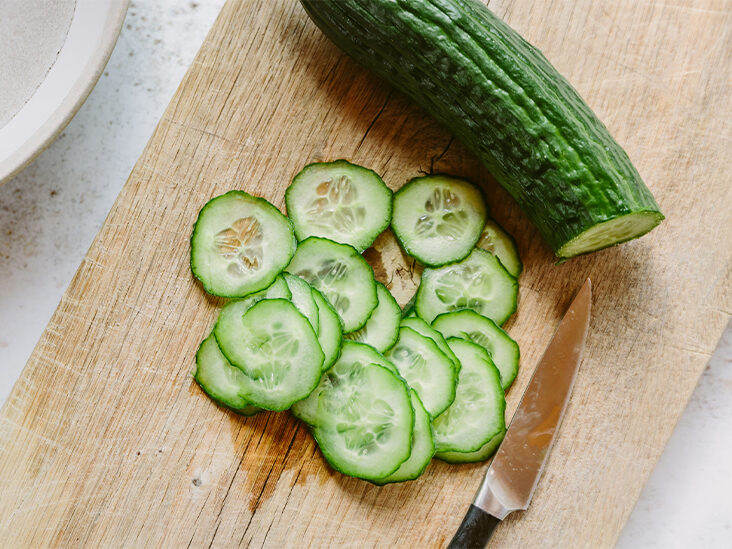
Cucumbers 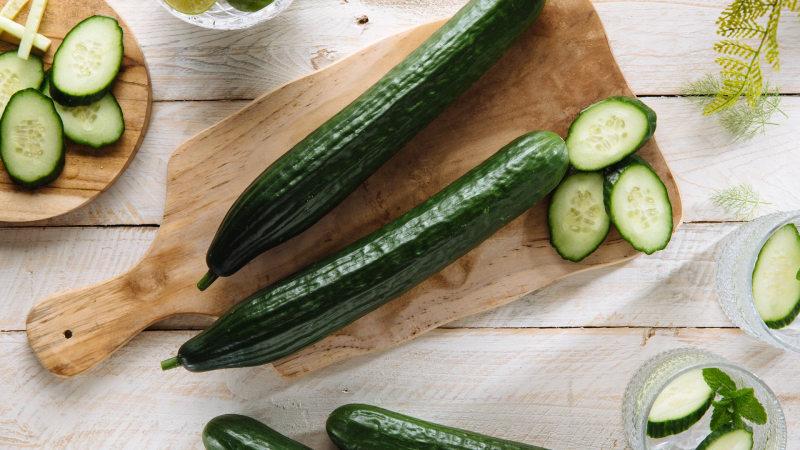
Cucumbers -
The popular fruit known as kiwi is full of important nutrients including fiber and potassium. According to multiple studies, kiwi could help with a variety of digestive problems and lessen bloating, stomach pain, and constipation.
According to the Office of Dietary Supplements, this tropical fruit is high in potassium, a key electrolyte that promotes sodium elimination from the body. Bloating may result from the body holding onto water as a result of sodium retention. Therefore, a diet high in potassium may help to alleviate bloating brought on by water retention. According to a study from February 2013 that was published in Advances in Food & Nutrition Research, kiwis also contain a substance called actinidin that may help with digestion, though human studies are lacking on this subject. Kiwis, on the other hand, are low in FODMAPs, making them more likely to be well tolerated even by those who have IBS than ripe bananas.

Kiwi 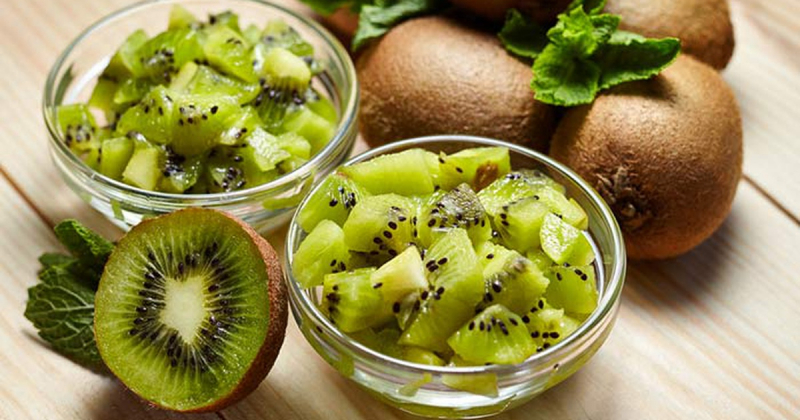
Kiwi -
Yogurt, kimchi, and kefir are examples of fermented foods that are packed with beneficial bacteria that help with digestion. According to some research, probiotics may improve stool frequency and consistency to promote regularity.
According to Harvard Health Publishing, some people's diarrhea and IBS symptoms can both benefit from the probiotics found in some yogurts. It's crucial to remember that everyone's tolerance for dairy is different and that eating dairy products may cause bloating in some people. However, yogurt might be acceptable to you even if you deal with an intolerance to most milk-based products. Yogurt contains live bacteria that break down part of the lactose, making the final product more tolerable for some people with lactose intolerance.
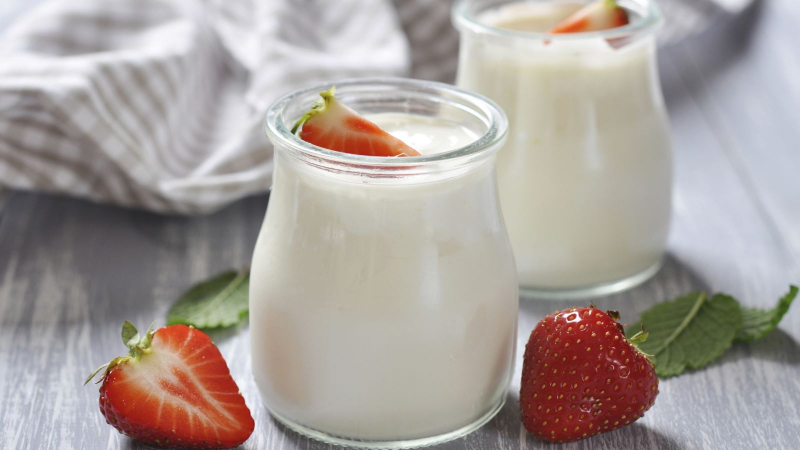
Yogurt 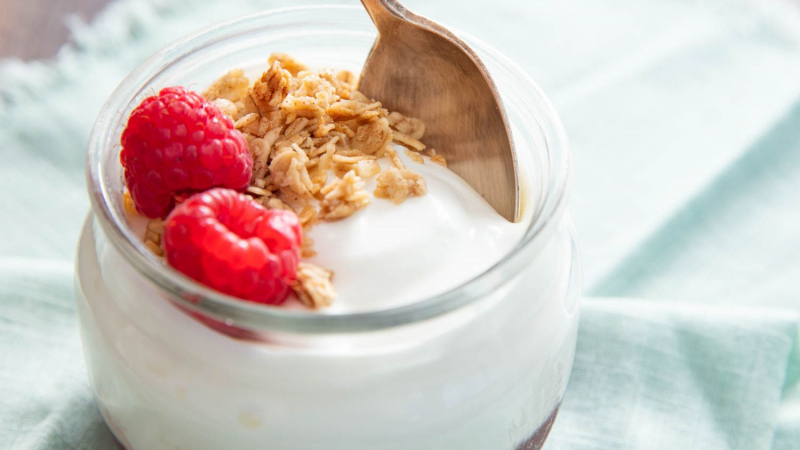
Yogurt -
The plant fennel, which is closely related to foods like carrots, celery, and parsley, is prized for its distinct licorice-like flavor. Interestingly, research indicates that fennel and its seeds have antispasmodic properties, which means they can help to relax the muscles in your intestinal tract to relieve gas and bloating.
According to a June 2016 study published in the Journal of Gastrointestinal and Liver Diseases, fennel seed essential oil can help lessen IBS symptoms like flatulence and GI spasms. Just remember that the type of fennel you consume might make a significant difference. However, fennel tea includes fructans, a common IBS trigger, despite studies showing that fennel essential oil can reduce IBS symptoms. Ask your doctor about taking supplemental fennel for bloating if you are aware that you are sensitive to FODMAPs.
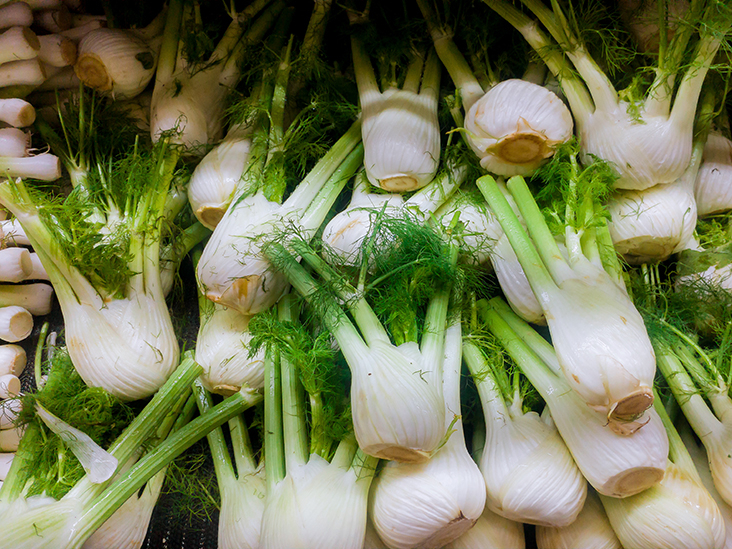
Fennel 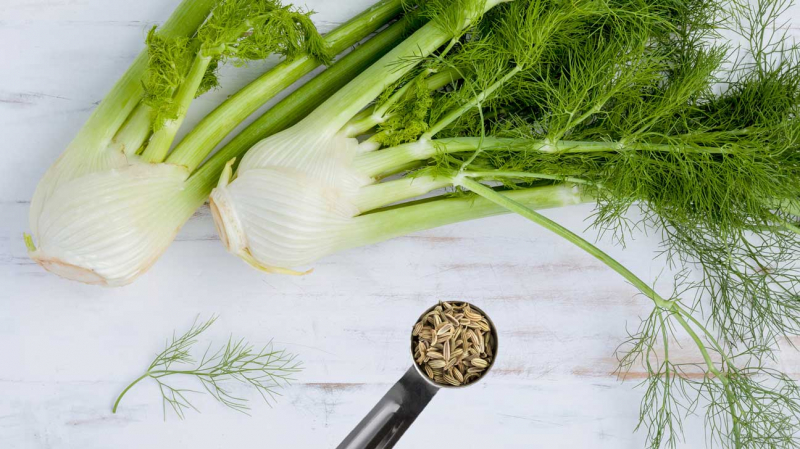
Fennel -
Oatmeal is a nutritious whole grain that can help lower blood cholesterol levels and aid in hunger control. A simple and efficient way to prevent bloating is to enjoy a bowl of oatmeal in the morning. This is due to the high fiber content of oats, which contains 4 grams every 1/2 cup (40 grams) serving. Additionally, they contain beta-glucan, a particular type of fiber with potent anti-inflammatory properties.
According to Monash University, patients with IBS can manage a serving of oats (1/2 cup) without any problems. Oats that have been verified to be gluten-free are also safe for those with celiac disease. A bowl of creamy porridge or oats and Greek yogurt are the simplest ways to eat oats in the morning. However, you can use oat milk in your coffee, tea, cereal, or protein shake if you don't like porridge or have trouble digesting dairy.
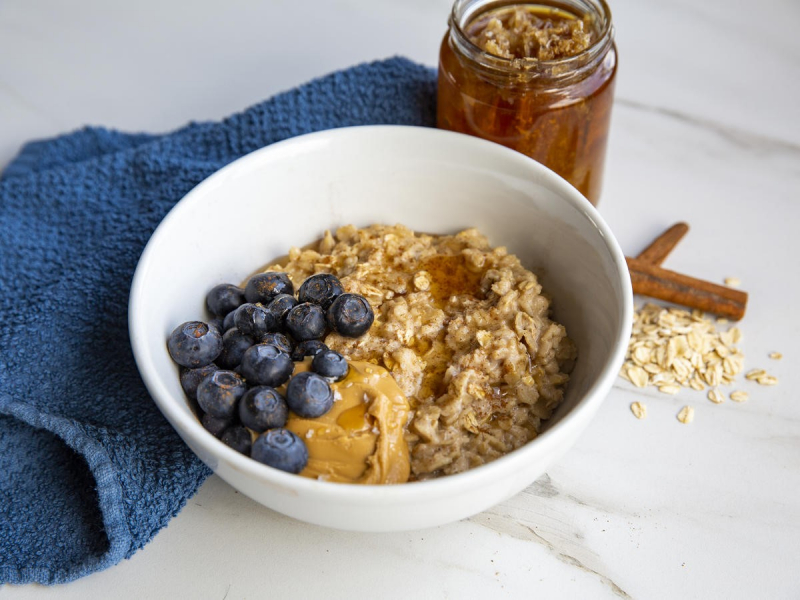
Oats 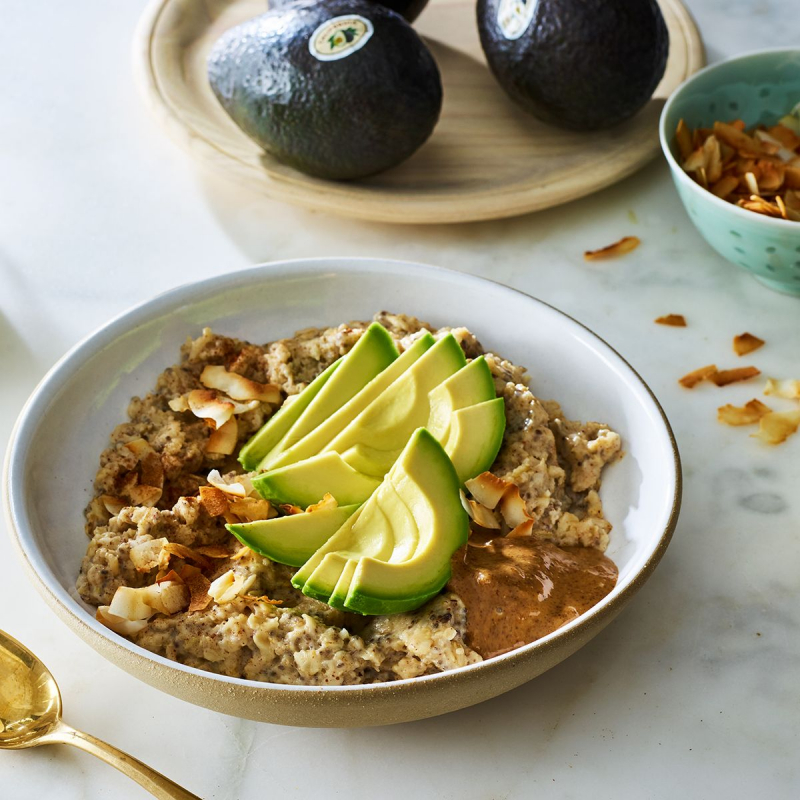
Oats -
The avocado is a good source of magnesium in addition to soluble fiber. Magnesium is crucial for activating digestive enzymes. It draws water into the intestines, relaxes the intestine's muscles, and helps neutralize stomach acid, all of which make it easier for stool to pass through the digestive tract and help you stay regular.
You can choose foods high in magnesium like avocado (pumpkin seeds and spinach are other excellent sources) to reap the benefits above. Avocados are very nutrient-dense foods that include significant amounts of folate as well as vitamins C and K per serving. They are also a good source of potassium, a crucial element for maintaining fluid balance and sodium, which lowers the risk of water retention. Additionally, they contain a lot of fiber, which passes slowly through the digestive system to promote regularity and prevent constipation and bloating.
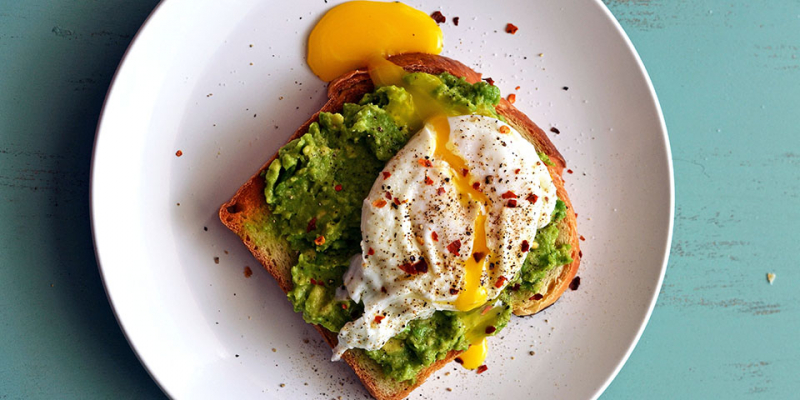
Avocado 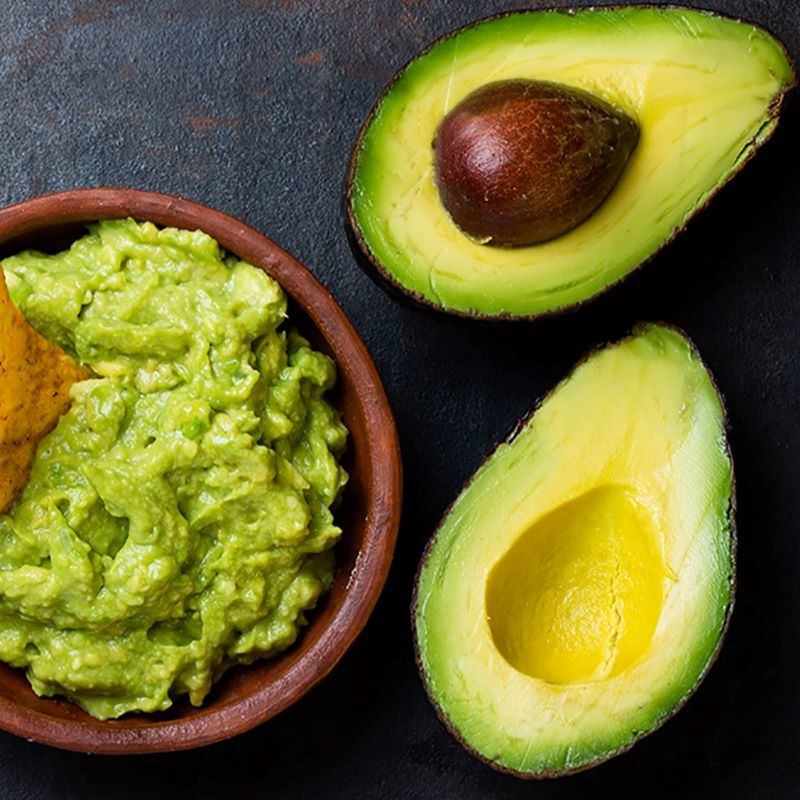
Avocado












